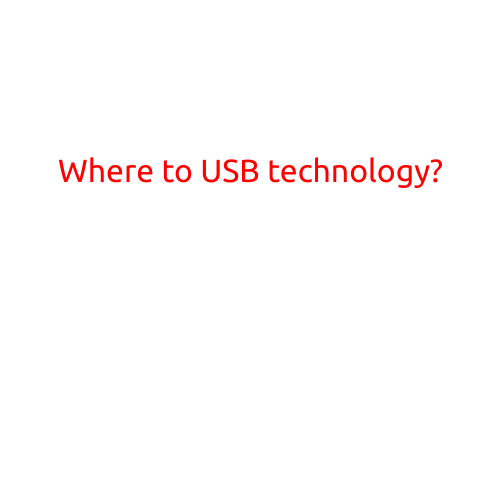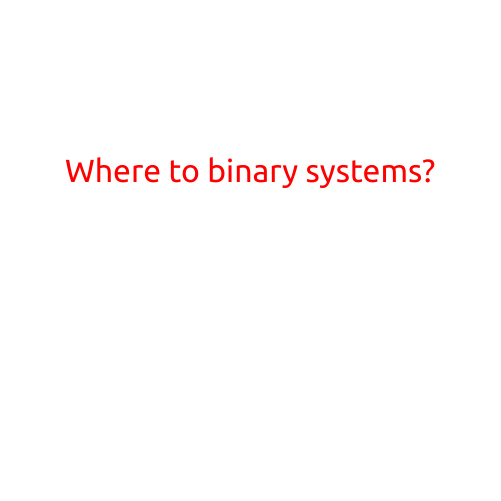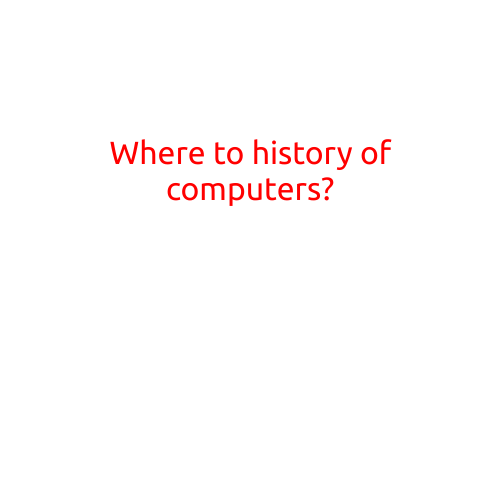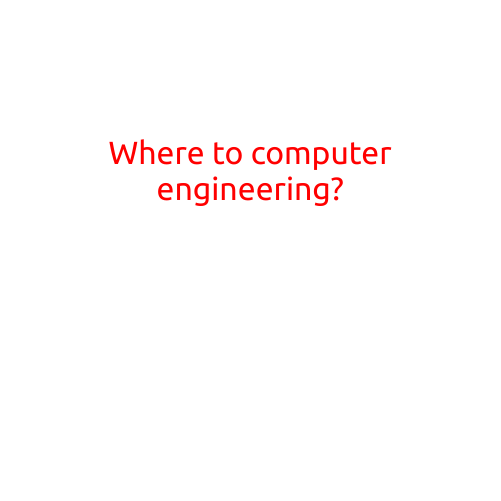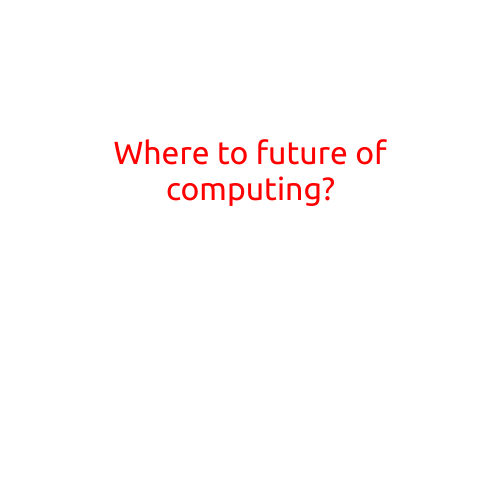
Where to Future of Computing?
The world of computing is constantly evolving, and the future is shrouded in uncertainty. With the advent of new technologies and innovations, it’s challenging to predict what’s in store for the industry. However, by examining current trends, breakthroughs, and experts’ opinions, we can attempt to uncover the likely trajectories of the future of computing.
Autonomous Systems and Edge Computing
One area that’s gaining significant attention is autonomous systems, where machines can make decisions independently without human intervention. This technology has the potential to revolutionize industries such as logistics, transportation, and healthcare. Edge computing, which involves processing data closer to the source, is another significant development that will enable faster decision-making and more efficient use of resources in autonomous systems.
Quantum Computing and Cryptography
Quantum computing, which utilizes quantum-mechanical phenomena to perform calculations, is expected to solve complex problems that are currently unsolvable by classical computers. This technology has far-reaching implications for fields such as medicine, finance, and climate modeling. Additionally, quantum computing’s potential to break current encryption algorithms is a significant area of concern in the field of cryptography, highlighting the need for new encryption methods.
Artificial Intelligence and Machine Learning
Artificial intelligence (AI) and machine learning (ML) are already transforming industries and will continue to play a crucial role in shaping the future of computing. AI-powered chatbots, virtual assistants, and predictive analytics will become increasingly prevalent, improving customer experiences and optimizing business operations. ML algorithms will continue to learn from data, enabling systems to make more accurate predictions and decisions.
Cloud Computing and 5G Networks
Cloud computing, which enables scalable and on-demand access to computing resources, will continue to grow in popularity. The rise of 5G networks, which promise faster speeds, lower latency, and greater connectivity, will enable widespread adoption of cloud computing. This will lead to more efficient data transfer, improved collaboration, and the development of new applications that require low-latency connections.
Blockchain and Distributed Ledger Technology
Blockchain, the technology behind cryptocurrencies like Bitcoin, has broader applications beyond digital currencies. Distributed ledger technology (DLT) will enable secure, transparent, and decentralized data storage and transaction processing. Several industries, such as supply chain management, healthcare, and finance, will benefit from the use of blockchain and DLT.
Human-Computer Interaction
As computing becomes increasingly integrated into our daily lives, the way we interact with computers will undergo significant changes. Advances in natural language processing, gesture recognition, and brain-computer interfaces will enable more intuitive and efficient human-computer interaction. This will lead to more seamless experiences, improved accessibility, and a broader range of applications for people with disabilities.
Challenges and Concerns
While the future of computing holds much promise, there are also challenges and concerns that must be addressed. Issues such as data privacy, bias in AI systems, and the ethical implications of autonomous decision-making will require careful consideration.
Conclusion
The future of computing is both exciting and uncertain. As we continue to witness advancements in technologies like quantum computing, AI, and blockchain, it’s essential to consider the potential benefits and drawbacks of these innovations. By embracing the challenges and opportunities that lie ahead, we can shape the future of computing to benefit humanity as a whole.

